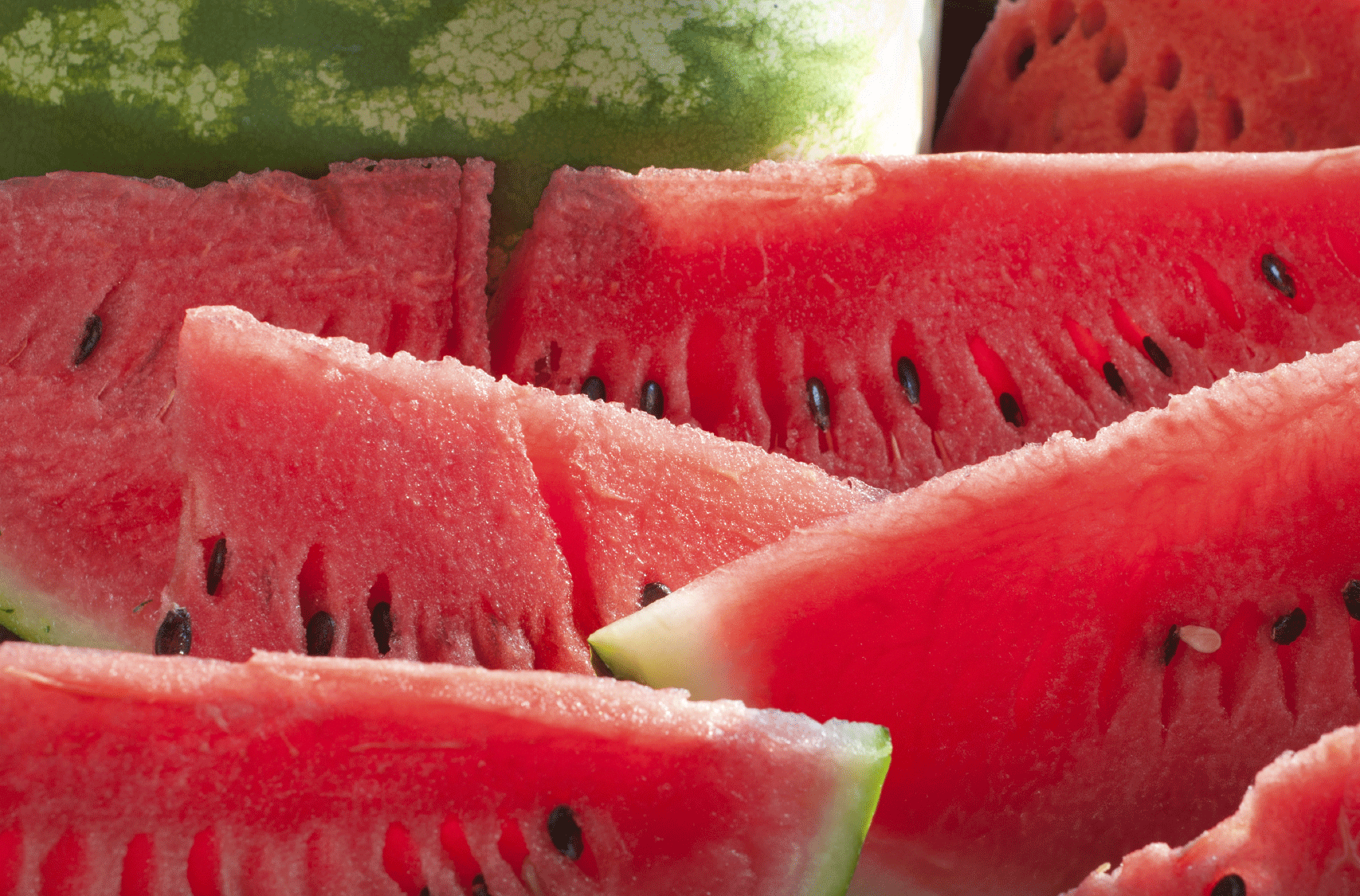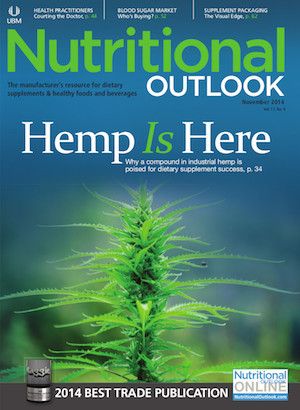Watermelon Has Lycopene, Too
How does watermelon lycopene compare to tomato lycopene?

Tomatoes enjoy nutritional fame for, among other useful compounds, their rich sources of lycopene. But watermelons have lycopene, too-and theirs might even be more effective.
Hoping to get a better understanding of watermelon nutrients, a team of Korean researchers compared tomato lycopene and watermelon lycopene using a series of assays designed to assess the antioxidative and anti-inflammatory potential of each lycopene compound. Compared to tomato lycopene, the lycopene in watermelon showed greater antioxidant activity in scavenging radicals such as DPPH and superoxide anion. The watermelon lycopene showed significant anti-inflammatory activity, as well. On human cells, it lowered expressions of common inflammatory biomarkers, such as inducible nitric oxide synthase (iNOS) and cyclooxygenase (COX-2), in a dose-dependent fashion.
The full results of the study are available in the International Journal of Food Science & Technology, and they should come as a welcome sign to manufacturers of watermelon juices and extracts that can even be based on watermelon rind. While watermelon juice can provide a tasty means of delivering the fruit’s lycopene content, researchers have warned of the possible loss of lycopene (and red color) during watermelon juice production. To mitigate the loss, a non-centrifuge juicing process may be best.
Watermelon is a valuable fruit for its many other nutrients, too, including vitamin C, beta-carotene, and the amino acid L-citrulline.
Robby Gardner
Associate Editor
Nutritional Outlook magazine
robby.gardner@ubm.com
Photo © iStockphoto.com/fotokostic

Balchem’s Newest Launch Optifolin+® Brings Innovation to the Folate Market
November 15th 2024Supplement launches featuring 5-MTHF are on the rise with double digit growth. In this episode of Nutritional Outlook’s podcast, we explore Optifolin+®, a new ingredient in the market that offers essential nutrition from prenatal through adulthood. Join us as we uncover the potential impact of the next evolution in folate, setting the stage for a healthier future.
The Nutritional Outlook Podcast Episode 35: Prioritizing Women's Health Research and Innovation
October 28th 2024On this month's episode of the Nutritional Outlook Podcast, Cepham's founder and president, Anand Swaroop, discusses the company's recent announcement to prioritize women's health research and innovation.